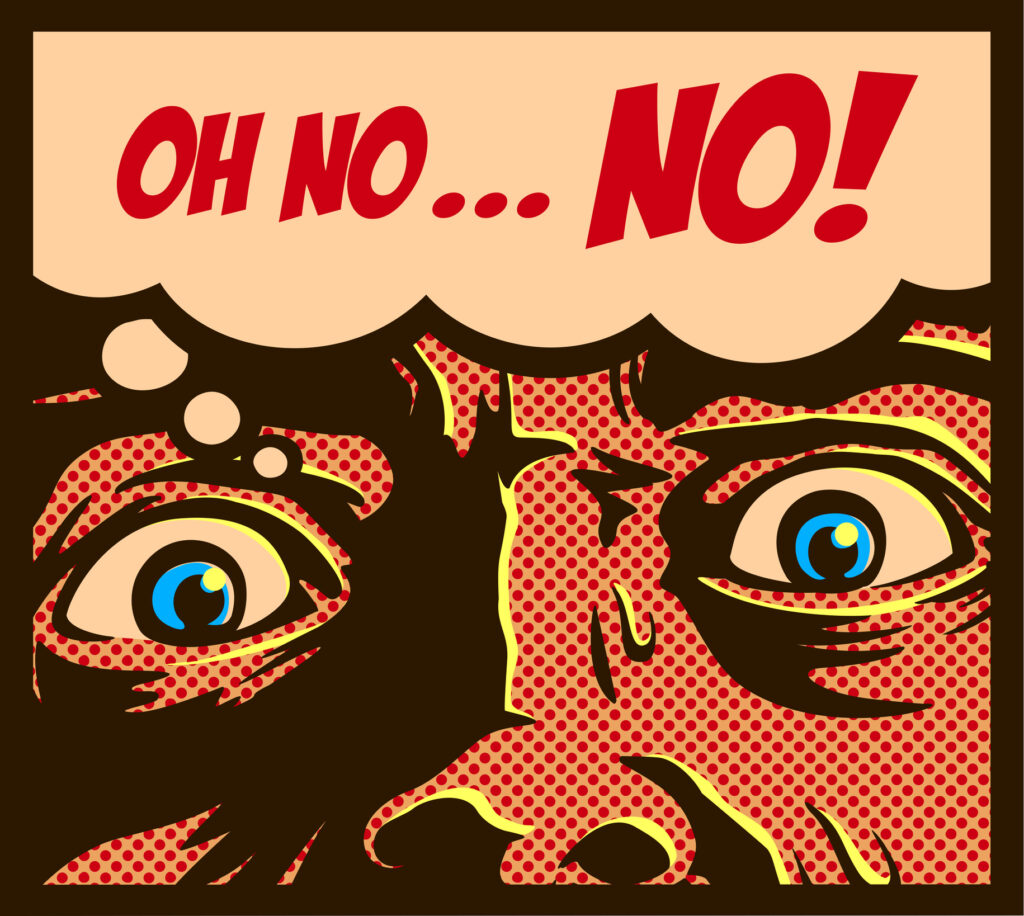Panic attacks feel different for everyone, but typically include sensations like a pounding heart, sweating, a feeling of terror, constricted or rapid breathing, and feeling as though the room is closing in on you or spinning. Regardless of how they present, a hallmark is that the normal things we might do to manage anxiety (deep breathing, CBT strategies, talking with a support person) often don’t work because our bodies and brains are too dysregulated to tap into those skills. If you’ve tried those things when a panic attack comes on and have been frustrated that they seem to not help, or even that they make things worse, you are not alone! Below you’ll find a few strategies that may be more successful in the midst of a panic attack, and can help get you to a place of nervous system regulation that will make it possible to tap into those other skills.
- Move.
A panic attack is signaling to your brain that there is a perceived threat it wants to get away from as fast as possible. It’s often not practical to truly run from the thing that is causing intense anxiety (a test or work presentation, a social interaction, etc.) but movement helps our brain calm down by reassuring it that if we were truly in danger, we could escape if needed.
In the height of a panic attack, many people feel frozen even if their brain feels like it wants to run away. Larger movements like walking, jumping, or dancing can be the quickest way to reset the nervous system, however, many people find they are unable to do so in the moment. If that is the case for you, try focusing your energy on the smallest movement you can think of (lifting a finger or toe, wiggling in your chair, pressing your feet into the ground). Let these small movements build to larger movements to get the same calming effect and move through that feeling of being “stuck” or “frozen”.
2. Taste Something Sour.
When experiencing a panic attack, our nervous system is entirely focused on the perceived threat at hand (sometimes people report experiencing “tunnel vision”) and it can feel like our brain and body forget that anything else exists. Eating something sour (or adding surprising sensory input of any kind) can help reset your nervous system into taking stock of what else is happening outside of the threat. You’ll need to follow-up with other coping skills after, but it can be enough to pull you out of the feeling that the panic attack is never going to end. Many people find success keeping sour candies on hand, especially when you’re in locations or situations that are anxiety-inducing.
3. Lean In
This one feels counterintuitive, but for many people the quickest way to stop a panic attack is to not try to stop it at all. Anxiety heightens when we try to ignore it. Imagine there was a person telling you the house was on fire, but you repeatedly responded, “no it’s not, it will be fine”. I doubt that person would agree and move on, instead they’d probably start yelling louder and louder until you finally took them seriously. For some people, coping strategies (especially things like distraction or positive statements) heighten anxiety and make panic attacks last longer. Try to imagine the panic attack as a roller coaster or wave, and remind yourself that this is a temporary state with an end point. It doesn’t feel great while it’s happening, but many people are surprised by how quickly they can move through a panic attack this way.
It’s important to note that everyone responds to coping skills differently, and it can take some trial and error to create a toolbox of skills that work for you. These tips are meant for the immediate management of panic attacks, so if you are experiencing frequent panic attacks be sure to reach out to a therapist who can help you understand what might be triggering them and can work with you to identify strategies for long-term management.
Read our other posts on Anxiety:

Exposure and Response Prevention for Effective OCD Treatment
Exposure and Response Prevention (ERP) is a form of Cognitive Behavioral Therapy (CBT) that involves purposefully exposing yourself to feared stimuli or situations in order to learn a new way of responding to them. If you struggle with OCD, this explanation of...
Coping with Scarcity and Scarcity Mentality
Are you among the millions of people that have lost work since a state of emergency was declared last month? Employment numbers keep rising across the country. And those numbers don’t account for those whose applications for unemployment remain in limbo. There is an...
Pandemic Survival Skills from an Anxiety Counselor
As we adjust to a new normal that includes self-quarantining, a shift in plans and routines, and significant uncertainty, it’s important to find ways to maintain our mental and emotional health. We’ve gathered some recommendations here, but strongly encourage you to...
3 Ways to Kindly Say “No” to Invites for Introverts
Life is challenging when you’re an introvert. What are simple interactions for many people can feel anxious and uncomfortable to you. The mere idea of taking part in certain social events can be exhausting and emotionally draining to an introvert. While some social...
Burnout Risk: 10 Signs You’re Addicted to Working
We live in a society that worships the overachiever. Burning the candle at both ends and denying yourself pleasure until the work gets done is seen as honorable. And while having a good work ethic is definitely key to living your best life, it is also important to...

